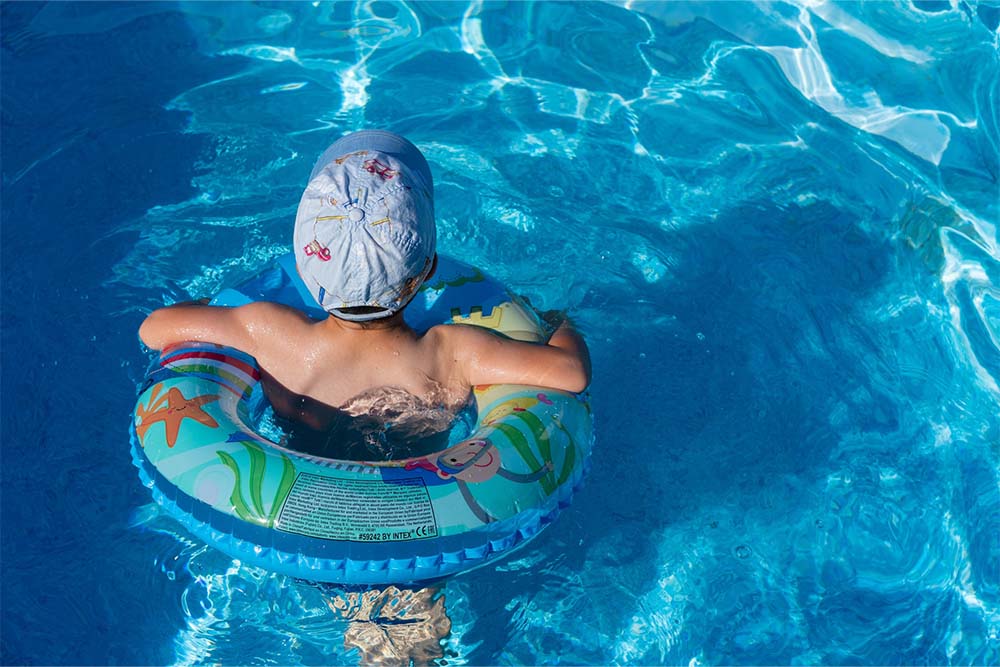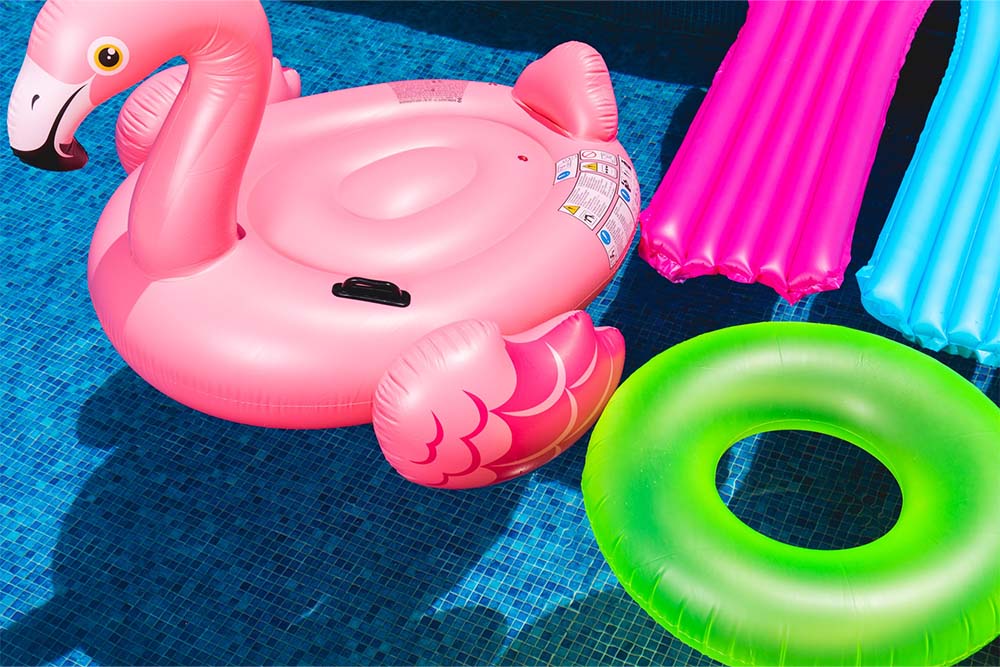Is Your Swimming Pool Dangerous?
How much do you know about your swimming pool?
Can you recognise dangers such as the build-up of harmful bacteria, or if your pool is secure enough to protect small children and animals from drowning?
Here are the most common swimming pool hazards and how you can avoid them.

Having a swimming pool in your backyard is a lot of fun, but also a serious responsibility.
There are unfortunately a lot of dangers associated with having a swimming pool, so it’s important not get complacent.
As a pool owner it’s crucial to keep up with hygiene, repairs and ongoing maintenance to ensure that your pool is safe to use.
Here are some factors to be aware of when it comes to your swimming pool.
Electricity
Water and electricity are a perilous combination.
Proper electrical wiring for a swimming pool and all its components is critical.
Every electrical component in the pool and within one meter of the water line should be bonded with a heavy ground wire loop.
Additionally, all electrical devices that contact the water, such as pumps and filters, must be properly connected with a ground fault interrupter.
Contact a local electrician, such as Jim’s Electrical, if you have any concerns.
Slippery decks
As swimming pool deck surfaces age and weather, they can become slippery as they develop algae.
It may be a good idea to arrange for a cleaning service, such as Jim’s Cleaning, to pressure wash your deck regularly to reduce the likelihood of anyone falling or slipping on a pool deck.
Water quality
Harmful bacteria can grow quickly in a poorly maintained swimming pool.
Today’s clear blue water can turn green overnight if the right balance of chemicals is not constantly monitored.
If the chemical balance is not maintained correctly, the water in your swimming pool could contain a range of microbiological organisms, including bacteria, viruses and protozoa.
These microbes can cause health problems, such as gastroenteritis, ear, nose and throat infections.
It is critical to ensure that the water quality is suitable for swimming to prevent infections, rashes and the spread of diseases.
You need to check your swimming pool regularly to ensure that the water is safe for swimming.
Any changes mean you should test the water and take steps to improve water quality before anyone goes swimming.
Testing the water regularly is crucial.
If you don’t have the time or ability to keep up with the care your pool needs, call in some professional help.
A professional pool cleaner, such as Jim’s Pool Care, can regularly visit to keep your pool levels safe and maintain cleanliness.
Pool contamination
Rather than wait until your pool becomes contaminated, you can take steps to recognise and prevent sources of microbes.
Sources may include:
- People swimming in the pool.
- Animals such as pets, ducks and other birds, frogs and lizards. Wildlife may occasionally drown in your pool, leading to further microbial infestations.
- Debris from around the property, including leaves, grass and branches. This is by far the easiest to manage by regularly trimming back overhanging branches, keeping your lawn maintained and raking up fallen leaves before they drift into your pool.
No time for garden maintenance? No worries!
Call in a professional gardener, such as Jim’s Mowing, to take care of these duties for you, leaving you with nothing but free time to enjoy your pool!
Chemical storage
Your swimming pool chemicals are generally a mix of strong acids, alkalines and poisons that can react badly with one another if brought into contact.
Chemicals should always be stored in a controlled, dry location that can be locked to keep children safe from ingestion.
Fencing and pool covers
More children and animals drown in Australian pools because of poor pool fencing than for any other reason.
Never be complacent about securing your pool.
Have a fencing professional such as Jim’s Fencing come over to assess your existing pool fence if you have one; if you don’t, have one installed immediately!
Pool covers can also present a safety hazard.
While they are strong enough to withstand weather conditions, they are often not nearly sturdy enough to hold small children and animals who may be tempted to walk across them.
Suction lines
Pool suction lines are in place to keep your pool clean, however, they can be more hazardous than many people realise.
The power of a pool pump is more than enough the cause severe and life-threatening injury, whether by trapping someone at the bottom of the pool or by disembowelment.
For the safety of swimmers, dual suction main drains spaced apart are now required so that you cannot cover both suction points simultaneously.
You do, however, still need to ensure that your main drain lids are fixed properly in place.

Pool toys
Surprisingly, pool toys present a more common hazard than many people realise.
Some floatation devices are simply not suitable for domestic swimming pools as they can cause people to become trapped underneath if flipped.
Pool toys such as large inner tubes or inflatable boats are better suited to the beach.
Pool slides
Swimming pool slides may seem like a fun idea, but you have to consider that a fall from the top will likely result in a fall straight onto concrete.
Pool slides are less common these days, and for a good reason, as they are the second most common cause of serious injury in a swimming pool.
Inflatable pool slides can be great fun but use them with caution and always with close supervision.
Owning a backyard swimming pool is a fun way to enjoy outdoor time and exercise for all the family, but if you aren’t a responsible pool owner, you may be doing your household more harm than good.
If you need any assistance regularly maintaining your swimming pool, contact Jim’s Group for a free quote on any services listed above such as Jim’s Pool Care, Jim’s Fencing, Jim’s Mowing, Jim’s Cleaning or Jim’s Electrical on 13 15 46.
Related Jim’s Group News
– The Ultimate Guide to Pool Fence Regulations Around Australia.





